Navigation
Around Nagpur
Academic Hub
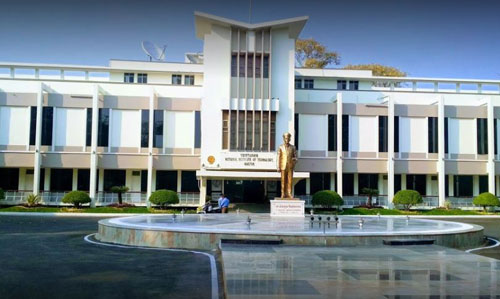 Nagpur is a major education hub in Central India. There are two types of schools in the city. NMC (Government) run schools and private schools run by trusts. These schools follow the 10+2+3/4 plan (15 years of schooling leading to the first degree), the first ten years constituting school education consisting of four years primary level, three years of upper primary level and three years of high school level with a public examination at the end of tenth class and 12th class constituting the Secondary and Higher Secondary Board Examination respectively. This is followed by either a general degree course in a chosen field of study or a professional degree course, such as law, engineering and medicine.
Nagpur is a major education hub in Central India. There are two types of schools in the city. NMC (Government) run schools and private schools run by trusts. These schools follow the 10+2+3/4 plan (15 years of schooling leading to the first degree), the first ten years constituting school education consisting of four years primary level, three years of upper primary level and three years of high school level with a public examination at the end of tenth class and 12th class constituting the Secondary and Higher Secondary Board Examination respectively. This is followed by either a general degree course in a chosen field of study or a professional degree course, such as law, engineering and medicine.

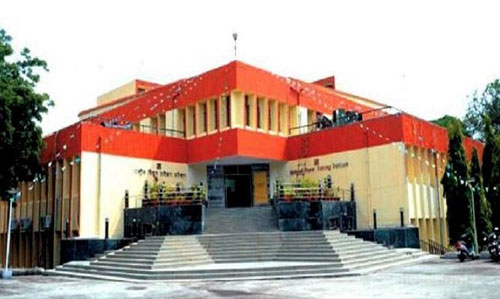
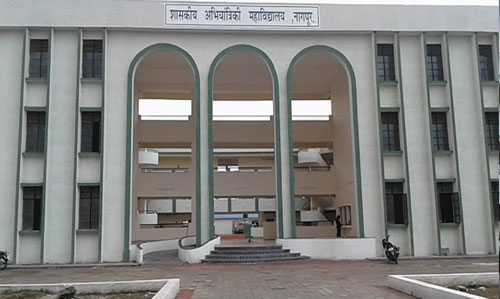

These schools are governed by either of the following boards: Maharashtra State Board of Secondary and Higher Secondary Education, Central Board for Secondary Education (CBSE), Indian Certificate of Secondary Education (ICSE) and The International Baccalaureate (IB).
Nagpur has four state universities: Rashtrasant Tukadoji Maharaj Nagpur University (founded in 1923 as Nagpur University, one of the oldest in the country and having more than 600 affiliated colleges), Maharashtra Animal and Fishery Sciences University, Kavikulaguru Kalidas Sanskrit University and Maharashtra National Law University. Admission to professional graduation colleges in Nagpur is through MHT-CET, JEE(Main), CAT, CLAT, GATE, CMAT, GMAT and NEET.
Vasantrao Naik Government Institute of Arts and Social Sciences (established in 1885 as Morris college) is an old college in the city. College of Agriculture is another old college in the city, founded in 1906 by the then British Government. It is one of the first five agriculture colleges in the country.
Nagpur has four government medical colleges: Government Medical College, Indira Gandhi Government Medical College, Nagpur, Government Dental College and Government Ayurvedic College, and also a private MBBS institute, N. K. P. Salve Institute of Medical Sciences and Research Center. Medical colleges in the city are affiliated to Maharashtra University of Health Sciences. All India Institute of Medical Sciences has been established in 2018 and it has started its classes from GMCH campus temporarily till its own campus gets constructed.
Most engineering colleges in the city are affiliated with Rashtrasant Tukadoji Maharaj Nagpur University. Laxminarayan Institute of Technology (established 1942) is a chemical engineering and technology institute located in Nagpur and managed directly by Rashtrasant Tukadoji Maharaj Nagpur University. Government Polytechnic, Nagpur (established 1914) is one of the oldest polytechnic in India. Visvesvaraya National Institute of Technology, located in the city, is the only NIT in Maharashtra. Indian Institute of Information Technology has been established as a PPP with TCS and Ceinsys(erstwhile ADCC Infocad) as industry partners in 2016. Other prominent engineering colleges in the city include G. H. Raisoni College of Engineering Nagpur, Shri Ramdeobaba College of Engineering and Management, Yeshwantrao Chavan College of Engineering and Government College of Engineering, JD College of Engineering and Management.
Nagpur has two major management institutes, Indian Institute of Management established in 2015 and Institute of Management Technology, private management college, established in 2004. Symbiosis International University has its campus in the city which contains two of its institute namely Symbiosis Institute of Business Management and Symbiosis Law School. G.S. College of Commerce and Economics, established in 1945, is the first commerce institute in the region to get autonomous status.
Nagpur also has other centrally funded institutes like National Power Training Institute, Central Institute for Cotton Research, Central Institute of Mining and Fuel Research, Central Power Research Institute, National Academy of Direct Taxes, National Civil Defence College, National Research Centre for Citrus, Petroleum and Explosives Safety Organisation, and National Environmental Engineering Research Institute.
- Rashtrasant Tukadoji Maharaj Nagpur University
- Maharashtra Animal and Fishery Sciences University
- Indian Institute of Information Technology, Nagpur
- Indian Institute of Management Nagpur
- National Power Training Institute
- Visvesvaraya National Institute of Technology
- All India Institute of Medical Sciences, Nagpur
- National Institute of Pharmaceutical Education and Research
- Government Medical College (Nagpur)
- Government College of Engineering, Nagpur
- Laxminarayan Institute of Technology
- Institute of Management Technology, Nagpur
- JD College of Engineering and Management, Nagpur and many more ….!
Read Less
Industrial Hub
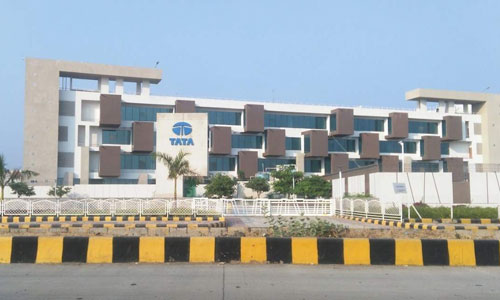 Nagpur is an emerging metropolis. In 2004, it was ranked the fastest-growing city in India in terms of the number of households with an annual income of 1 crore (10 million) or more. Nagpur has been the main centre of commerce in the region of Vidarbha since its early days and is an important trading location. Although, Nagpur’s economic importance gradually declined relative to Mumbai and Pune after the merging of Vidarbha into Maharashtra because of a period of neglect by the state government, the city’s economy later recovered.
Nagpur is an emerging metropolis. In 2004, it was ranked the fastest-growing city in India in terms of the number of households with an annual income of 1 crore (10 million) or more. Nagpur has been the main centre of commerce in the region of Vidarbha since its early days and is an important trading location. Although, Nagpur’s economic importance gradually declined relative to Mumbai and Pune after the merging of Vidarbha into Maharashtra because of a period of neglect by the state government, the city’s economy later recovered.

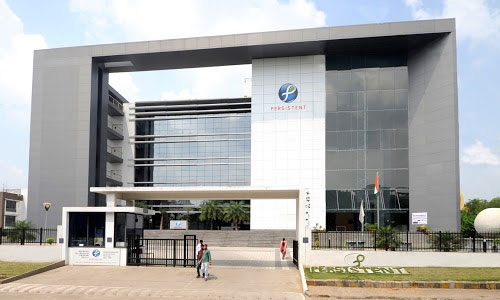

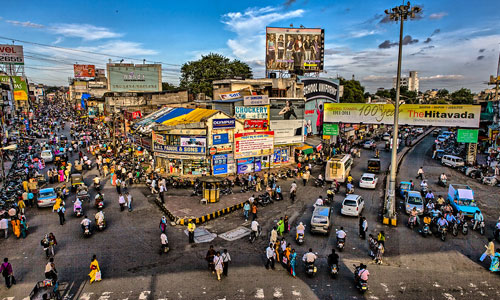
Nagpur city had attracted 5000 crore worth of investment in 2004. Its per capita income was 123,610 (US$1,800) in 2015 and its GDP was estimated to be $15.10 billion in 2016. The city is important for the banking sector as it hosts the regional office of Reserve Bank of India, which was opened on 10 September 1956. The Reserve Bank of India has two branches in Nagpur, one of which houses India's entire gold assets. Sitabuldi market in central Nagpur, known as the heart of the city, is the major commercial market area.
Nagpur is home to ice-cream manufacturer Dinshaws, Indian dry food manufacturer Haldiram's, Indian ready-to-cook food manufacturer Actchawa, spice manufacturer Suruchi International and Ayurvedic products company Vicco and Baidyanath.
For centuries, Nagpur has been famous for its orange gardens in the country, hence the name "Orange City". Orange cultivation has been expanding and it is the biggest marketplace for oranges in the country. The Maharashtra Agro Industrial Development Corporation has its multi fruit processing division called Nagpur Orange Grower's Association (NOGA) which has an installed capacity of 4,950 MT of fruits per annum. Orange is also exported to various regions in the country as well to other countries. Nagpur is also famous for the cotton and silk which is woven by its large Koshti population of handloom weavers which are around 5,000. Nagpur and the Vidarbha region have a very prominent power sector as compared to the rest of Maharashtra. Koradi Thermal Power Station and Khaparkheda Thermal Power Station are two major thermal power stations located near Nagpur and operated by MSPGCL. NTPC has a super thermal power plant called Mauda Super Thermal Power Station in Mauda around 40 km from Nagpur and Vidarbha Industries Power Limited (a subsidiary of Reliance Power) is situated at Butibori
MIHAN: The Multi-modal International Hub Airport at Nagpur (MIHAN) is an ongoing project for the Dr. Babasaheb Ambedkar International Airport, Nagpur. The government of Maharashtra formed a special purpose entity, Maharashtra Airport Development Company, for the development of MIHAN. Apart from MIHAN SEZ the city has three prominent MIDC areas nearby.
METRO: Nagpur Metro is a rapid transit system for the city of Nagpur, India. It is estimated to cost 8,260 crore (US$1.2 billion). In February 2014, the Government of Maharashtra gave approval for the Metro Project, while Government of India's Ministry of Urban Development had given "In Principle" approval for the Project. On 20 August 2014, Union Cabinet gave approval for the development of project, and Prime Minister Narendra Modi laid foundation stone on 21 August on his visit to the city. Construction on the project began on 31 May 2015, with trial run beginning on 30 September 2017.
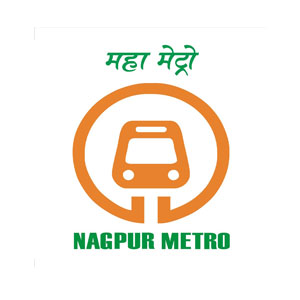
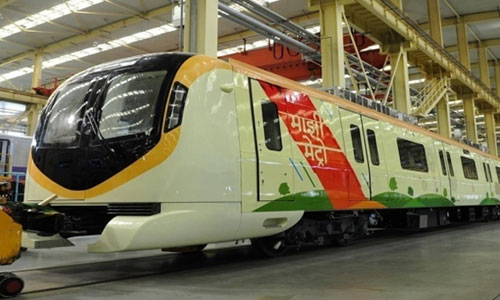
Prime Minister Narendra Modi inaugurated operations on Nagpur Metro on 8 March 2019 via video conferencing along with Maharashtra Chief Minister Devendra Fadnavis and Union Cabinet Minister Nitin Gadkari. Nagpur Metro becomes 13th Metro system in India to be operational. It is also being touted as the greenest metro rail in India.
MIDC: The Butibori industrial area is one of the largest in Asia in terms of area. The estate's largest unit is Indo Rama Synthetics, which manufactures synthetic polyester yarn. Other units in Butibori include the power transmission company Gammon India Limited (T & D), Gammon India Ltd. (Infra), KEC, Calderys India, Unitech Power Transmissions Limited, ACC Nihon Castings Ltd and Electrolux. CEAT Tyres has its tyre manufacturing plant in Butibori The Hingna industrial estate on the western fringes of the city is made up of around 900 small and medium industrial units. The major ones among them are the tractor manufacturing plant of Mahindra and Mahindra, casting units of NECO Ltd.,Candico), Bharat Containers making aluminium aerosol cans Pix Transmissions, and Sanvijay Rolling & Engineering Ltd. (SREL). Kalmeshwar MIDC has 164 industrial plots. JSW Steel, KTM Textile, ESAB India Ltd, ZIM Pharma Ltd, Metlok Pvt. Ltd., Unijuels life sciences, Chemfield Pharmaceuticals Private Ltd., Minex Injection Product Private Ltd., Minex Metallurgical Co.Ltd. and Porohit Textile are a few big names.
Owing to rich natural resources in the region, mining is a major activity. Several government organisations related to the mining industry are based in Nagpur, which includes Western Coalfields Limited (one of the eight fully owned subsidiaries of Coal India Limited), MOIL and Indian Bureau of Mines.
IT PARK: Prominent Information Technology companies such as TCS, Tech Mahindra, HCL, GlobalLogic, Persistent Systems and Hexaware are located at various IT parks in Nagpur. Infosys has commenced its construction work for its Nagpur campus at MIHAN Special Economic Zone.
TAL Manufacturing Solutions has its facility in the SEZ for manufacturing structural components for Boeing's 787 Dreamliner aeroplane. Air India has its MRO Facility in the SEZ which was constructed by Boeing. Dassault Reliance Aerospace Limited (DRAL) has its manufacturing facility in MIHAN where it is manufacturing Falcon jets. Pharmaceutical company Lupin also has its facility in the SEZ.
Read Less
Leisure
 National Park:
National Park:
Nagpur is surrounded by many tiger reserves and acts as a gateway, hence called Tiger capital of India. Tiger reserves such as Pench Tiger Reserve is situated around 100 km from the city and can be reached through NH44 in Nagpur Jabalpur road. Tadoba National Park is situated south of the city and is around 141 km from the city. Umred Karhandla Wildlife Sanctuary, Bor Wildlife Sanctuary, Navegaon National Park, Melghat Tiger Reserve and Kanha Tiger Reserve are the other tiger reserves which are located at a radius of 200 km from the city. The city has its own reserved forest area at Seminary Hills and Gorewada.
- Tadoba Andhari Tiger Project
- Pench National Park
- Nagzira-Navegaon Tiger Reserve
- Melghat Tiger Reserve
- Bor Tiger Reserve
- Umred Karhandla Wildlife Sanctuary
- Seminary Hill




4.3.2 Hill Station: A hill station is a town located at a higher elevation than the nearby plain or valley.
List of hill stations near Nagpur-
- Pachmarhi.
- Chikhaldara.
- Bhandardara.
- Igatpuri.
- Jawhar.
- Lonavala.
- Khandala.
- Lavasa.
Religious places:
Nagpur boosts for many religious structures which are important for respective religious beliefs. Deekshabhoomi and Dragon Palace Temple are important religious places for Buddhists across India and the world. Deekshabhoomi is the place where Dr. Babasaheb Ambedkar with millions of his followers embraced Buddhism in the year 1956. Dragon Palace Temple is situated at Kamptee which is around 15 km from the city. It also has a state of the art Vipassana centre which was inaugurated by President of India Ram Nath Kovind on 22 September 2017.
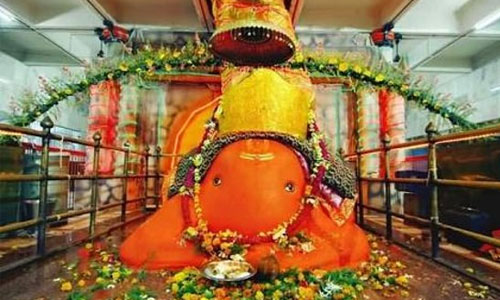
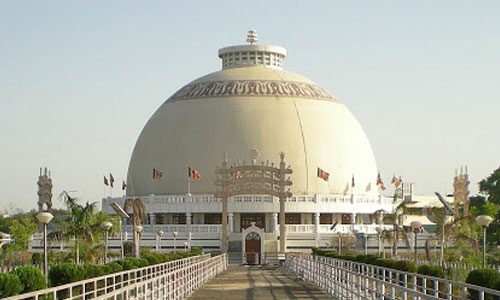
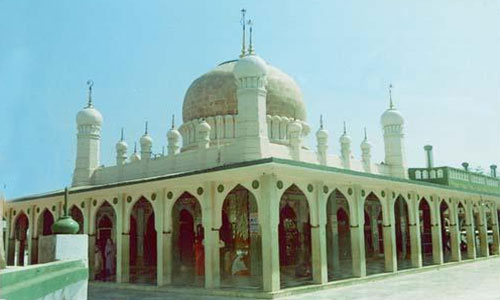
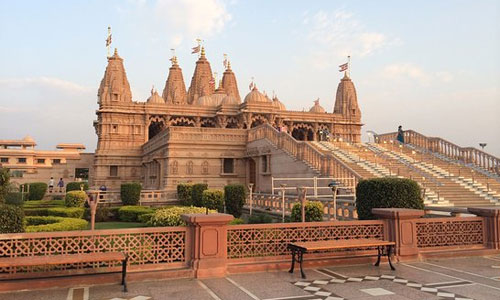
Other prominent religious structures include Ramtek Fort Temple at Ramtek which is a temple built inside a fort and is 55 km away from Nagpur, Adasa Ganpati Temple located near Savner is one of the eight Ashta Vinayaks in Vidarbha,
Baba Tajjuddin Dargah, Shri Shantinath Digambar Jain Mandir at Ramtek, Shree Ganesh Mandir Tekdi, located near Nagpur Railway Station and one of the Swayambhu temple of Lord Ganesha, Sai Baba Mandir at Wardha road, Telankhedi Hanuman Temple, Swaminarayan Temple, Koradi Temple, located at Koradi, Shri Poddareshwar Ram Temple, Balaji Temple, All Saints Cathedral and Gurudwara Guru Nanak Darbar.
Museums:
Nagpur Central Museum
The city also has some museums which are Nagpur Central Museum and Narrow Gauge Rail Museum. Raman Science Centre is a premium Science Centre of Central India, that has of late become a must see feature on the city's tourist landscape with many scientific experimental edutainment installations which also has a planetarium and a unique facility called the Science on a Sphere inside. Amusement parks such as Fun N Food Village, High Land Park, Fun Planet and Dwarka River Farms and Amusement Park are located in the city.
Sports:
a.Nagpur is one of the few Indian cities that has more than one international cricket stadium, the older one being the Vidarbha Cricket Association Ground situated in Civil Lines, and the new one, the Vidarbha Cricket Association Stadium, inaugurated in 2008 is situated in Jamtha, Wardha Road on the outskirts of the city. Vidarbha Cricket Association Stadium has been built on Wardha road with a seating capacity of 45,000 people at a cost of 75 crore (US$11 million).
b. Vidarbha Hockey Association is a body governing hockey in the Hockey India as an associate member. Vidarbha Hockey Association Stadium is the hockey ground owned and managed by Vidarbha Hockey Association.
c. Western India Football Association is the state governing body for football in Maharashtra, and is affiliated with the All India Football Federation, the national sports governing body. The Nagpur District Football Association is a district level football body and conducts various matches among the schools and clubs. It has its own league. Lokmat NPL (Nagpur Premier League), another football tournament, was held at Nagpur annually since 2010 till 2014 by Lokmat Group in Yeshwant Stadium. Nagpur FC and YMFC are renowned football clubs in the city. Other clubs include, Rabbani Club, Rahul Club, City Police, South East Central Railway, Qidwai Club, SRPF, New Globe and City Club. Nagpur FC has its own Football Academy in Dhanwate National College, Congress Nagar. Slum Soccer is a social initiative started by Vijay Barse for young runaways and former drug addicts to rehabilitate them through football.
d. Badminton tournaments in the city are organised by Nagpur District Badminton Association (NDBA) which is affiliated to Maharashtra Badminton Association which in turn is a member of Badminton Association of India.
e. Nagpur District Table Tennis Association organises table tennis tournaments at district level and is affiliated to Maharashtra Table Tennis Association. The city also has a divisional sports complex which consist of Indoor stadium and other gymnastic facilities. The city also has various running events, for general public, organised by various institutions.
Read Less

